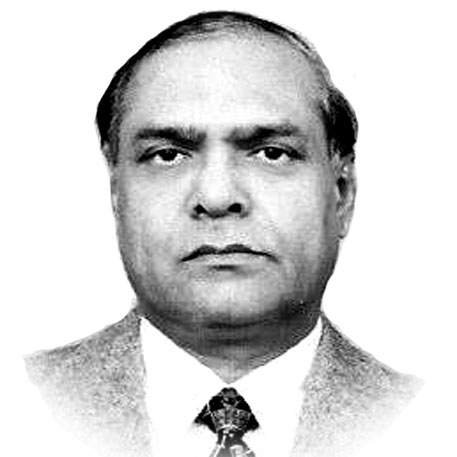Rashid A Mughal
CHRISTIAN Wollny is a well known writer, associated with “Modern Diplomacy” which is an invaluable platform for assessing and evaluating complex international issues that are often outside the boundaries of mainstream Western media and academia. They provide impartial and unbiased qualitative analysis in the form of political commentary, policy inquiry, in-depth interviews, special reports, and commissioned research. They are a leading European think tank and opinion maker with far-reaching influence across the Middle East, Africa, and Asia. They do not just provide information but expose readers to analysis that goes deeper than what standard media exposes. Today’s world already has an avalanche of information-real and fake. It is determined to voice will to power, to question but not dictate, to freely engage intellectual arena and encourage passionate but respectful debate and discussion. It does not stand behind any specific agenda, narrative, or school of thought but aim to expose all ideas, thinkers, and arguments to light and see what remains valid and sound.
Writing in one of his recent article, Christian Wollny exposes the cracks in European Unity which have come on the surface in the past few months about dealing with Covid-19 and funding the countries hit hard by the virus. European unity and solidarity stand at the precipice right now. How can the members trust in each other in times of a greater peril when even during a global epidemic help is forsaken? How to convince Spain to commit to Poland’s protection from Russia, or prevent Italy from deepening its ties with China via the Belt and Road Initiative? The EU appears to be a house divided; the European unity must mean more than just travelling around visa-free. Failing to get their act together, Europeans will fall under approaches of the USA, Russia, and China, all vying for a slice of the European Cake”. Christian Wollny urges that “Europe must come together politically – now, not after the crisis has passed. Politicians from Warsaw, Berlin, Paris, Madrid to Lisbon must unite as quickly as possible, coordinate, show the European people: we stand as one, nobody gets left behind, no one in our common European home. Remember the good of the united Europe, common values, and the most powerful have to move forward together in unison: Angela Merkel and Emmanuel Macron have to do more than just emotional appeals or the war rhetoric against the enemy named Corona. Europe must fight the virus with its common strength. This rich, diverse continent with its educated, diverse people must now prove that it is more than an economic community. Political leaders have to lead by example, or else risk losing everything that generations of statesmen and the society have so painstakingly erected: peace, stability, and friendship across a historically war-torn continent”.
Yet, in the event of a global pandemic, the EU relegates have responsibility to local or regional administrations. While federal states such as Germany have been just as slow to react, leaving the organizational responsibility with local governments (and only recently nationalizing the purchase of medical equipment), other more unitary states such as France have been quicker to react. Even the Commission President Ursula von der Leyen has admitted that the coronavirus has been underestimated by politicians. Besides appeals to member states to not shut down their borders and calls for solidarity, the EU leadership has once again showed its powerlessness during a crisis. The Emergency Response Coordination Centre (ERCC), founded in 2013 precisely for managing a situation like the ongoing pandemic, has failed to provide Italy the help and supplies it urgently requested. European member states can utilize the ERCC to request assistance from other members, but Italy’s latest call in this crisis has remained largely unanswered by its neighbors. It’s a free-for-all out there. Even in the current time, the strife is evident. The ongoing Turkey-Greece 2020 Refugee Crisis showcases this yet again. Greece is expected to uphold the European law and protect the EU-borders, whilst German commentators decry her actions as “racist” and fascist.” Instead of shaming Erdogan, who unilaterally broke the EU-Turkey refugee deal, the European public hounds Greece. Greeks have been very tolerant and welcoming over the years, but the situation on Greek Isles has reached a tipping point, and again a member state is left alone. The ongoing crisis has been pushed back from the spotlight.
A more historic example of discrepancy in unity was the preferential treatment of the United Kingdom in terms of their financial contributions to the EU budget. The so-called “UK Rebate,” active from 1985 to 2020, ensured that the UK retained the majority of its financial contributions. Many EU member states have repeatedly sought to right this wrong, but to no avail. While certainly not the first injustice to sow discord among the member states, it was a particularly significant issue, showing the duality of treatment between larger and smaller economies in the EU. At the Vienna conference, held in last week of May2020, Macron and Angela Merkel floated the idea of a 500 billion euro Corona virus recovery fund for grants to countries hit hard by virus, but the same was opposed by Austria, Sweden, Denmark and Holland-Known as EU frugals and instead called for loan-based approach. French President, Macron has appealed to all EU leaders for showing solidarity and unity in the face of this pandemic.“Each of us can have our own interests. Everyone can have an interest in negotiating on their own, and think they can negotiate better than their neighbor. If we do that collectively, we will create a situation which is unfavorable to the European Union and thus to each one of us”, he said recently. German Chancellor Angela Merkel and Commission President Jean-Claude Juncker have also cautioned against infighting among the 27, now that the negotiations are moving on to the transition and the framework for the long-term relationship.
— The writer is former DG (Emigration) and consultant ILO, IOM.










